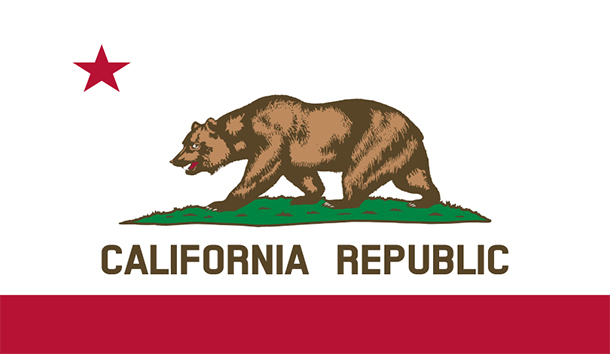Most Americans have no idea that California was once an independent republic and came into the Union, like Texas, without going through a territorial stage. This is symbolized by California’s state seal, which features Minerva, who sprang from Jupiter’s head fully formed. During the 1950’s we Golden State schoolchildren were taught all about our Bear Flag Revolt and the men who led it. But because they were independent, courageous, and armed white men, they are not to be revered in these politically correct times.
By 1846 several hundred Americans were farming and ranching in the Sacramento, Sonoma, and Napa valleys. They were hearty pioneers who had crossed overland to California, intending on extending the American frontier to the Pacific. They had no desire to become Mexican citizens or to conform to the customs and mores of the sleepy province known as Alta California.
Mexican authorities began to worry about them as war with the United States was looming over the admission of Texas to the Union. In April 1846, Gen. Jose Castro issued a proclamation ordering the American settlers to vacate California within 40 days under penalty of death. There is also evidence that Castro dispatched agents to incite the Indians of the interior to attack the American settlers. Said Marine Lt. Henry Watson, who arrived in San Francisco Bay aboard Portsmouth, “It has been satisfactorily established that he has attempted to bribe the Indians to massacre all the foreign inhabitants.”
Instead of abandoning their farms and ranches, the ornery frontiersmen formed militias and prepared for a fight. They called themselves Bears, after the California grizzly, known for its strength and ferocity. When they got word Lt. Francisco Arce and his escort of soldiers were moving 200 horses from the Vallejo rancho to Santa Clara for delivery to General Castro, they struck. Early on the morning of June 10, a party of Bears led by Ezekiel Merritt swept down on the Mexicans with such suddenness that they captured them without a shot fired. Arce protested that he and his men had been taken unawares. The Tennessee-born Merritt, a veteran Rocky Mountain beaver trapper, offered to return the horses, let Arce signal when ready, and then the Americans would charge again, this time shooting. Arce declined.
A few days later, Merritt again led a party of Bears, riding from the Sacramento Valley to Sonoma and picking up more American volunteers along the way. Early on the morning of June 14, the Bears, now some 30 strong, swept down on Sonoma, which housed a Mexican garrison. Most of the soldiers had been reassigned, but there remained 9 cannon, 200 muskets, and stores of ammunition. Living in the town was California’s former commandant of troops and still the commander of the northern frontier, Gen. Mariano Vallejo, who was also the wealthiest of the rancheros. He awoke to find his house surrounded by armed men. “Almost the whole party,” said one of the Bears, “was dressed in leather hunting-shirts . . . [T]hey were about as rough a looking set of men as one could well imagine.”
Vallejo’s wife urged him to flee, but he donned his dress uniform and invited the Bears in to discuss terms. Redheaded 6′ 8″ Kentucky-born Robert Semple led Merritt and Maryland-born William Knight, who was fluent in Spanish, into Vallejo’s house. Unknown to the Bears, Vallejo had no love for Mexico, and by the mid-1840’s had begun favoring American annexation of California. The Bears enjoyed his hospitality, especially his brandy. When the Bears outside grew impatient at the pace of the negotiations, they sent in John Grigsby and then William Ide, both known for their temperance. The articles of capitulation were soon completed, and Vallejo and two other Mexican officers were taken to Sutter’s Fort for safekeeping.
With their mission accomplished and with the threat of General Castro and 200 troops headed their way, several of the two-dozen remaining Bears suggested they ride for Fremont’s camp at Marysville Buttes in the Sacramento Valley. “Saddle no horse for me,” declaimed Ide.
I will lay my bones here before I will take upon myself the ignominy of commencing honorable work, and then flee like cowards, like thieves, when no enemy is in sight. . . . Flee this day, and the longest life cannot wear off your disgrace! Choose ye! Choose this day what you will be! We are robbers, or we must be conquerors!
Pat McChristian, Sam Gibson, William O’Fallon, Sam and Ben Kelsey, Henry Ford, Dave Hudson, John Kelly, and other Bears exploded in cheers. By acclamation the Bears elected William Ide president of the California Republic, and later proudly raised the Bear Flag over Sonoma. The republic would live for 25 days before the United States took control of California.

Leave a Reply